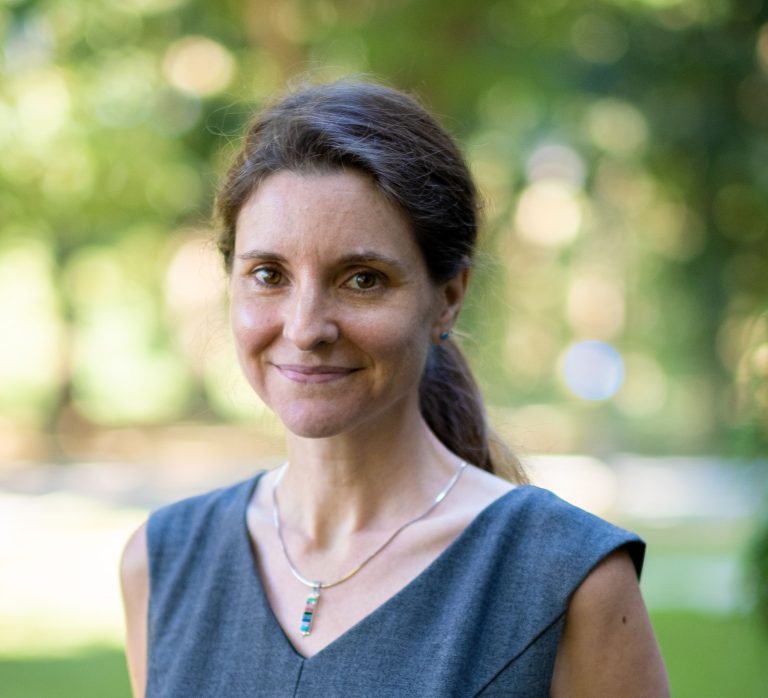Understanding Financial Literacy and Generational Wealth With Latasha Ramsey-Cypria

Generational wealth refers to the accumulation of assets, financial resources, and opportunities that are passed down from one generation to the next within a family or community. It is a means of creating a lasting financial legacy, enabling future generations to enjoy a higher standard of living. It also means access to educational and entrepreneurial opportunities and having a financial safety net.
Want to learn more about storytelling? Start by downloading the first chapter of The Storytelling Series for Small Businesses.
Generational wealth is hardly by chance but often achieved through strategic financial planning, investments, and the transfer of assets. It plays a crucial role in breaking the cycle of poverty and promoting economic stability and upward mobility for descendants.
See the full interview with Latasha Ramsey-Cypria
5 things to know about creating Generational Wealth
Financial literacy and creating generational wealth are important goals for individuals and communities, including the African diaspora. Here are five key things to know about this topic:
- Education is Key: Financial literacy is the foundation for building generational wealth. It’s crucial to educate yourself and your community about basic financial concepts, including budgeting, saving, investing, and debt management. This knowledge empowers individuals to make informed financial decisions and pass down valuable lessons to the next generation.
- Investing in Assets: Building generational wealth often involves investing in appreciating assets such as real estate, stocks, or businesses. Encouraging investment in assets can lead to the accumulation of wealth over time. Additionally, understanding the power of compound interest can help individuals make strategic investment decisions.
- Entrepreneurship and Business Ownership: Entrepreneurship can be a powerful tool for creating wealth. Encouraging entrepreneurship within the African diaspora community can lead to the creation of businesses that can be passed down to future generations. It’s essential to provide resources and support for aspiring entrepreneurs, including mentorship and access to capital.
- Financial Planning and Estate Planning: Effective financial planning, including estate planning, is crucial for passing down wealth to future generations. Creating wills, trusts, and other estate planning tools can help ensure that assets are transferred smoothly and tax-efficiently. Proper planning can also protect family wealth from unexpected events.
- Community Support and Networking: Building generational wealth can be challenging, but a strong sense of community and networking can make it easier. Encourage community members to support one another in their financial journeys. This can include sharing knowledge, collaborating on business ventures, and investing in each other’s success.
In summary, financial literacy and generational wealth creation in the African diaspora community require education, asset-building strategies, entrepreneurship, financial and estate planning, and a supportive community network.
By focusing on these aspects, individuals and families can work towards achieving their financial goals and leaving a legacy for future generations.
The importance of financial literacy to the African diaspora community?
Financial literacy also encompasses an understanding of key financial concepts and instruments, such as interest rates, credit, taxes, and risk management. With financial literacy, individuals are better equipped to make sound financial choices, secure their financial well-being, and work towards achieving their financial objectives throughout their lives.
Financial literacy is vitally important to the African diaspora community for several reasons. Some of them are as follows:
- Wealth Creation and Economic Empowerment: Financial literacy equips individuals with the knowledge and skills needed to manage their finances effectively, make informed investment decisions, and build wealth over time. This is particularly important in addressing historical wealth disparities and promoting economic empowerment within the African diaspora community.
- Breaking the Cycle of Poverty: Many members of the African diaspora have faced systemic barriers and economic challenges. Financial literacy offers a pathway to break the cycle of poverty by teaching individuals how to budget, save, invest, and make sound financial choices, ultimately improving their economic circumstances and that of future generations.
- Asset Accumulation: Financial literacy helps individuals understand the importance of accumulating assets such as homeownership, investments, and small businesses. These assets can be appreciated over time, providing a source of wealth that can be passed down to children and grandchildren.
- Entrepreneurship and Business Development: Financial literacy supports entrepreneurship and business development, which can lead to economic self-sufficiency and wealth creation. By understanding financial principles, individuals in the African diaspora community can better plan and manage their businesses, increasing the likelihood of success and long-term prosperity.
- Community Resilience: A financially literate community is more resilient in the face of economic challenges and emergencies. Individuals who understand financial planning and risk management are better prepared to navigate financial crises and protect their assets.
- Legacy Building: Financial literacy enables individuals to create a financial legacy for future generations. By making sound financial decisions and passing on their knowledge, assets, and resources, they can provide their children and grandchildren with a stronger foundation for success.
In summary, financial literacy is essential to the African diaspora community as it empowers individuals to overcome economic disparities, and build wealth. It equally helps to support entrepreneurship and create a brighter future for themselves and their descendants, ultimately contributing to the economic and social advancement of the community as a whole.
About the guest – Latasha Ramsey-Cypria
Latasha Ramsey-Cyprian is a native of Abita Springs, La. She’s married and has two daughters. She received an MBA from Louisiana State University-Shreveport.
Latasha works professionally in Human Resources and has 20 years of HR experience.
Latasha is the owner of Optimum Life Credit Solutions. She is 5 Times bestselling Author and international Best-Selling Author. She is a Credit Repair Specialist, Certified Life Coach, and International Speaker. Latasha focuses heavily on breaking generational curses, building generational wealth, women empowerment, and spreading financial literacy.
Visit her website: www.optimumlifecreditsolutions.com.
Learn More About Obehi Podcast
Obehi Podcast brings you leaders and experts from different industries to share their experiences, relating to the African diaspora, business, and storytelling. Listen to Obehi Podcast across different platforms: Spotify, Apple Podcast, YouTube, and much more.
Want to learn more about storytelling? Start by downloading the first chapter of The Storytelling Series for Small Businesses.





